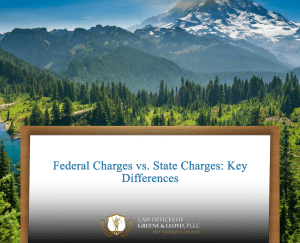## Navigating Conversations with Insurance Adjusters: Essential Tips
When engaging with insurance adjusters, it is crucial to understand the intricacies of the conversation. The communication process holds significant weight in insurance claims, as adjusters are tasked with evaluating claims rigorously. Effective communication can greatly influence the outcome of your claim, making it essential to be prepared and strategic in your conversations. This article will delve into valuable insurance adjusters tips that will empower you to handle discussions effectively.
Essentially, understanding how insurance adjusters work and what they seek during interactions can serve as a crucial advantage. Adjusters often approach conversations aiming to gather information to determine the legitimacy and value of a claim, making it vital for claimants to communicate accurately and confidently. Familiarizing yourself with key strategies will not only bolster your position but also enhance the chances of receiving a fair settlement.
Effective conversations with insurance adjusters require planning and knowledge to prevent miscommunication or misunderstandings that could affect your claim negatively. By adopting the right mindset and utilizing proven tips, claimants can navigate these conversations with ease and confidence.
## Understanding the Role of Insurance Adjusters
Insurance adjusters play a pivotal role in the claims process, functioning as representatives for insurance companies to assess the validity of claims and determine the appropriate amount that should be paid. Their responsibilities include investigating claims, gathering evidence, and negotiating settlements. Adjusters must remain objective while adhering to company policies and regulations while also unearthing facts that influence the decision-making process.
To achieve their objectives, adjusters use different strategies to elicit information from claimants. Understanding their motives can substantially shape how one approaches the conversation. Claimants should be aware that adjusters will likely dig for details about the incident in question, witness testimonials, and any other relevant information, often working to limit potential liability for the insurance company.
Thus, understanding the role of an insurance adjuster is not just an academic exercise, but rather a fundamental step in preparing for discussions with them. Recognizing their function allows claimants to respond with appropriate caution and intentionality to steer the conversation toward favorable outcomes.
## The Importance of Effective Communication
Communication skills can make or break your interactions with insurance adjusters. Clarity and coherence are your allies during these discussions, as adjusters rely on accurate information to make assessments. Clear, concise communication can eliminate potential misunderstandings and misinterpretations. Thus, articulating your thoughts effectively is an invaluable asset during these interactions.
Moreover, establishing rapport with the adjuster can be advantageous. Maintaining a cordial demeanor can contribute to a more favorable environment where both parties can share information openly. However, being overly friendly should be approached with caution; the primary focus must remain on the facts of your claim. Understanding the fine line between casual conversation and maintaining a professional boundary is crucial.
Finally, remember that communication is a two-way street. While you present your case, it is equally important to listen attentively to the adjuster’s inquiries and comments, responding thoughtfully to guide the conversation productively. This mutual engagement can lead to a smoother process, positioning you as a viable partner in the claims settlement journey.
## Legal Implications Surrounding Conversations with Insurance Adjusters
When discussing sensitive topics such as claims, it is vital to understand the legal context surrounding these conversations. Many state laws govern how insurance adjusters operate, including regulations on how claims must be handled and claims negotiation strategies. Being aware of these laws empowers claimants to engage more knowledgeably and assertively.
Additionally, anything you say during conversations with adjusters can affect your claim, including your eligibility and settlement amount. It is essential to avoid admitting fault or providing overly detailed accounts without consulting legal counsel first. Even seemingly innocuous statements can have unintended consequences in the claims process, hence the need for a mindful approach.
Lastly, knowing your rights as a claimant is imperative. You have the right to remain silent about topics that may implicate liability until you’ve consulted with an attorney, as well as the right to seek legal representation at any point during the process. Understanding these legal implications and asserting your rights can protect you from being taken advantage of during negotiations.
## Practical Examples of Interactions with Insurance Adjusters
Real-world scenarios illustrate the complexities of communicating with insurance adjusters. For instance, in a case where an individual sustained injuries in a car accident, the adjuster might ask detailed questions about the events leading up to the accident. If the claimant inadvertently admits to being partially at fault, it can immediately compromise their claim’s strength and potential value.
Consider another scenario where a homeowner submits a claim for water damage caused by a plumbing failure. If the adjuster questions the maintenance history of the plumbing system, any inconsistencies in the claimant’s responses could lead to delays or denials. It is crucial for the claimant to have documented evidence of maintenance and repairs to substantiate their case effectively.
Through these examples, it becomes apparent that every word and detail shared with an insurance adjuster can carry significant weight. Crucial takeaways from these interactions underscore the importance of being well-prepared and cautious with information shared. Seeking clarity in every aspect and ensuring accuracy can safeguard the value of your claim.
## Steps to Take When Engaging with Insurance Adjusters
Taking the right steps before and during your conversation with an insurance adjuster can set the tone for positive interactions. Preparation is fundamental; collecting all relevant documentation, including incident reports, photographs, and any medical records, can equip you to answer questions thoroughly. Having organized documentation readily available can foster confidence and demonstrate your seriousness regarding the claim.
During the discussion, approach the conversation methodically. Begin by presenting necessary details in a clear and organized manner, then follow the adjuster’s inquiries. If uncertainty exists about specific questions or legal terms, ask for clarification before responding. This not only shows that you are engaged, but it also allows for accurate responses that reflect your understanding.
Lastly, manage your expectations when dealing with insurance adjusters. Be prepared for negotiation, and maintain a calm and composed demeanor throughout the process. Understanding that the conversation may extend beyond a single exchange can help create a more amicable atmosphere, potentially leading to a favorable resolution.
## Common Pitfalls to Avoid During Claims Discussions
While there are effective strategies for communicating with insurance adjusters, there are also several pitfalls to avoid that can jeopardize your claim. One of the most significant errors is speaking without prior reflection. Claimants might feel pressured to answer immediately, but rushing into answers can lead to admissions or inaccuracies that compromise their case.
Another common mistake is overlooking the importance of withholding certain statements. Claimants should refrain from providing recorded statements without double-checking their legal right to do so, as discussions can be misconstrued. Caution in what is shared is essential, as any statement made can become a permanent part of the claim and affect the outcome.
Finally, descending into confrontational or emotional exchanges can also hinder productive discussions. Maintaining professionalism even in the face of challenging questions is vital; a calm demeanor can play a role in negotiating more effectively with adjusters. Always prioritize substance over style to ensure that the focus remains on resolving the claim satisfactorily.
## Understanding When to Seek Legal Counsel
Identifying the right time to consult an attorney during the insurance claims process is critical. One clear indication is if you encounter resistance or difficulty in negotiating fair compensation that accurately reflects the damages sustained. An attorney can provide legal guidance and leverage their knowledge during negotiations, significantly impacting settlements after unfair dealings.
Another scenario warrants legal consultation when adjusters request recorded statements or extensive documents that seem overly invasive. A legal professional can properly advise you on your rights in these situations, ensuring you are not compelled to provide information that may disadvantage your claim.
Also, if you face complications regarding medical costs, liability disputes, or if the adjuster seems to push back against valid claims, seeking legal representation becomes essential. Legal counsel can advocate on your behalf, navigating the nuances of the law and ensuring that your rights are protected throughout the claims process.
## Advantages of Securing Legal Representation
Engaging legal representation can substantially benefit individuals during the claims process with insurance adjusters. One major advantage is that attorneys possess deep familiarity with the intricacies of insurance law. This knowledge can guide claimants through complex legalese, helping them understand their rights and how to best present their case.
Additionally, attorneys can act as intermediaries between claimants and adjusters, allowing claimants to focus on recovery without the stress of direct negotiations. This buffer can alleviate the anxiety associated with confrontational discussions, enabling the claimant to maintain their emotional well-being while professionals handle negotiations.
Finally, when claims escalate to disputes or litigation, having an attorney becomes indispensable. Legal representation can provide the expertise needed for formal proceedings, significantly boosting the likelihood of a favorable outcome and ensuring compliance with all necessary legal protocols.
## How Law Offices of Greene & Lloyd, PLLC Can Facilitate Your Claims Process
The Law Offices of Greene & Lloyd, PLLC, have established a reputation for helping clients navigate complex interactions with insurance adjusters effectively. Their attorneys bring a wealth of knowledge about Washington State’s legal frameworks and how they intersect with insurance negotiations, ensuring that clients receive comprehensive guidance throughout the process.
Furthermore, they take pride in their personalized approach to client cases, thoroughly understanding each client’s unique needs and circumstances. This tailored strategy allows their team to devise informed strategies that maximize clients’ opportunities for achieving fair settlement amounts.
Ultimately, their focus on advocacy and commitment to client success ensures that individuals receive the support needed during challenging times. With their comprehensive legal representation, clients can rest assured that their claims will be handled prudently.
## Frequently Asked Questions About Discussing Claims with Insurance Adjusters
## Additional Resources for Claimants
Accessing reliable resources can further equip claimants in their interactions with insurance adjusters. Various state and national legal organizations offer guides and support for individuals navigating the claims process. These resources often include detailed information about rights, procedural guidelines, and templates for necessary documentation, enabling claimants to approach adjusters with greater assurance.
Networking with local support groups or talking to other beneficiaries who have undergone similar experiences can also provide practical insights and psychological support. It can be advantageous to learn from others’ experiences and consider their tips as part of your strategy during discussions with insurance adjusters.
Finally, many law offices, including the Law Offices of Greene & Lloyd, PLLC, provide free consultations. Utilizing these services can be a significant first step in understanding the legal landscape and obtaining specific advice tailored to your unique situation.




